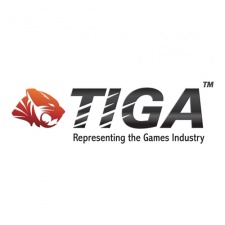The UK’s games industry has been expanding at its fastest ever rate, according to new research from UK games industry trade association TIGA.
Between 2019 and 2020, the country’s market saw its highest annualised growth since the research was first conducted in 2007 and 2008.
From November 2018 to April 2020, the number of people working in development studios grew from 14,353 to 16,836, an increase of 12.2 per cent. Meanwhile, the total workforce, including contractors, within games development hit 18,279, a huge leap from the 16,532 it used to be.
Moreover, the number of jobs available, which have been indirectly supported by studios, jumped from 26,241 to 30,781.
“The UK video games development sector is growing at an annualised rate of 12.2 per cent. This is the fastest rate that the UK industry has experienced since our research began in 2007-08,” said TIGA CEO Dr. Richard Wilson.
“A number of forces are driving growth in our industry. Firstly, the UK is one of the finest games development centres globally, with outstanding small, medium and large studios creating content that sells all over the world. The industry is supported by many excellent universities which educate and prepare highly skilled graduates for work in the sector.”
Moneymaker
The UK games industry has also proven lucrative, with the amount of money generated for the Treasury increasing from £747 million ($971 million) to £907 million ($1.18 billion). Furthermore, investment from studios rose to £993 million ($1.3 billion) while the games sector’s contribution to UK Gross Domestic Product increased hit £2.2 billion ($2.86 billion).
“The global market for video games is growing. There is strong consumer demand for mobile, PC and console games, which in turn is helping to drive growth in the UK video games sector,” Wilson added.
“For example, research from Unity comparing global mobile and PC games usage for the period Jan-May 2020 with the equivalent period in 2019 showed a 46 per cent increase in daily PC gaming and a 17 per cent increase in daily mobile gaming during the lockdown.”
A bit of relief
One of the reasons for the UK games industry’s impressive growth is the Video Games Tax Relief (VGTR), which has been extended into 2023. Introduced in 2014, VGTR lessens the cost of games development, should the studio be able to prove that the game fits in with British culture.
“Video Games Tax Relief (VGTR) is enabling our sector to grow strongly. TIGA played a critical role in the long battle to win VGTR, which effectively reduces the cost and risk of game development and is incentivising investment and job creation in the games industry,” said Wilson.
“There is a clear connection between the introduction of VGTR and employment growth in the UK games development sector. The UK games industry declined by an annual average of 3.1 per cent between 2008 and 2011, before VGTR existed. Since VGTR has been available, the average annual growth rate has been 8.9 per cent.”

